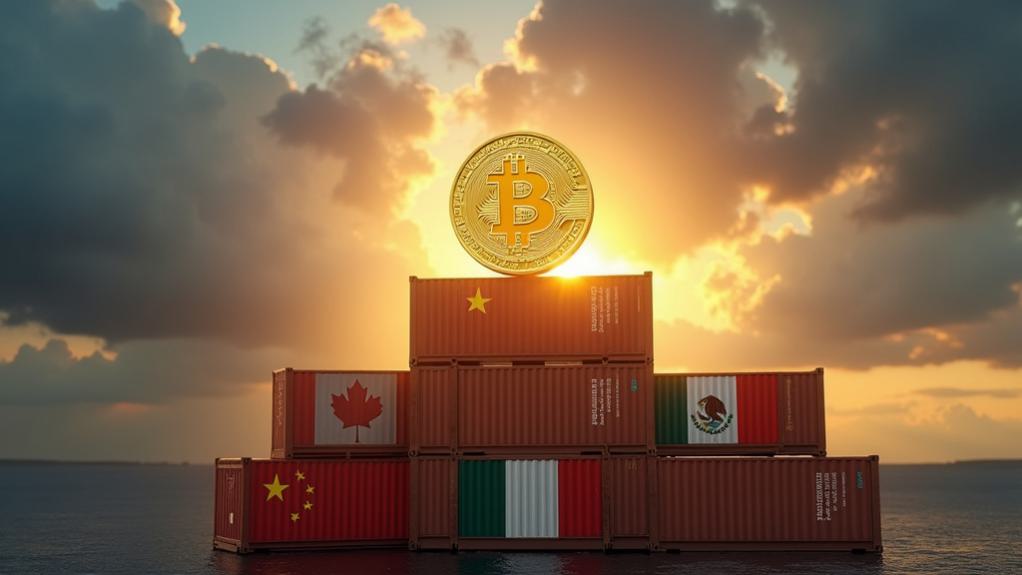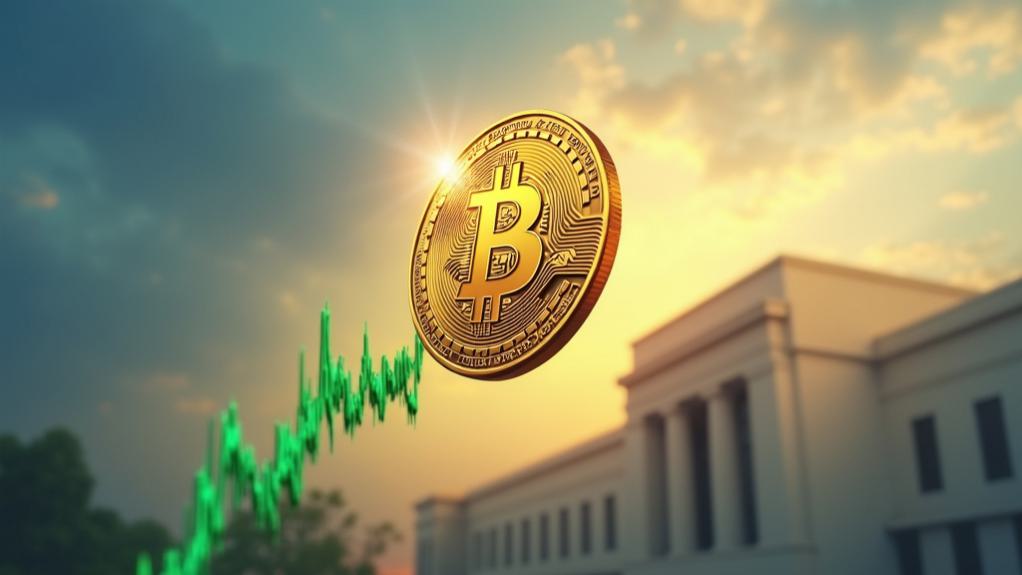The collision of trade policy and cryptocurrency markets has investors on edge. When Trump announced his 25% tariffs on Canada and Mexico and 10% on China, markets wobbled. Bitcoin wasn’t immune. The cryptocurrency initially dropped alongside stocks – no surprise there. It’s been acting like a risk asset lately. When markets panic, Bitcoin often follows suit.
But here’s where things get interesting. Short-term pain, long-term gain. Bitcoin’s immediate reaction to tariff announcements mirrored traditional markets. Uncertainty breeds fear. Fear breeds selling. Simple as that. Investors flocked to traditional safe havens like gold, leaving Bitcoin in temporary limbo.
This pattern won’t last forever. Economic instability has historically been Bitcoin’s playground. Trump’s tariffs are strategically designed to achieve long-term objectives beyond immediate economic impacts. Remember why it was created? After the 2008 financial crisis, as a response to centralized financial failures. Trade wars create exactly the kind of instability that highlights Bitcoin’s value proposition. Bitcoin’s scarcity and decentralization make it particularly attractive during periods of economic uncertainty. The blockchain’s steady growth rate of 36% annually since 2016 demonstrates its persistent adoption despite market fluctuations.
Unlike altcoins, Bitcoin has shown more resilience during market turbulence. Ethereum and others remain tightly coupled with tech stocks. Bitcoin’s correlation with NASDAQ? Not as strong. This distinction matters. A lot.
Global economic impacts of tariffs – inflation, supply chain disruptions, slower growth – create the perfect storm for Bitcoin adoption. When traditional systems falter, alternatives thrive. That’s just how it works.
Institutional players aren’t blind to this dynamic. They’re quietly increasing Bitcoin allocations. Not because they’re crypto fanboys, but because they’re pragmatic. Capital preservation matters when trade wars threaten conventional assets.
The geopolitical angle cannot be ignored. Countries affected by tariffs might turn to Bitcoin as a trade settlement mechanism. Bypassing restrictions becomes appealing when the rules change. Central banks are watching closely. They’re not fans, but they’re not stupid either.





